Growing gardens into businesses: Women from remote Indigenous communities in Panama become role models who challenge cultural norms
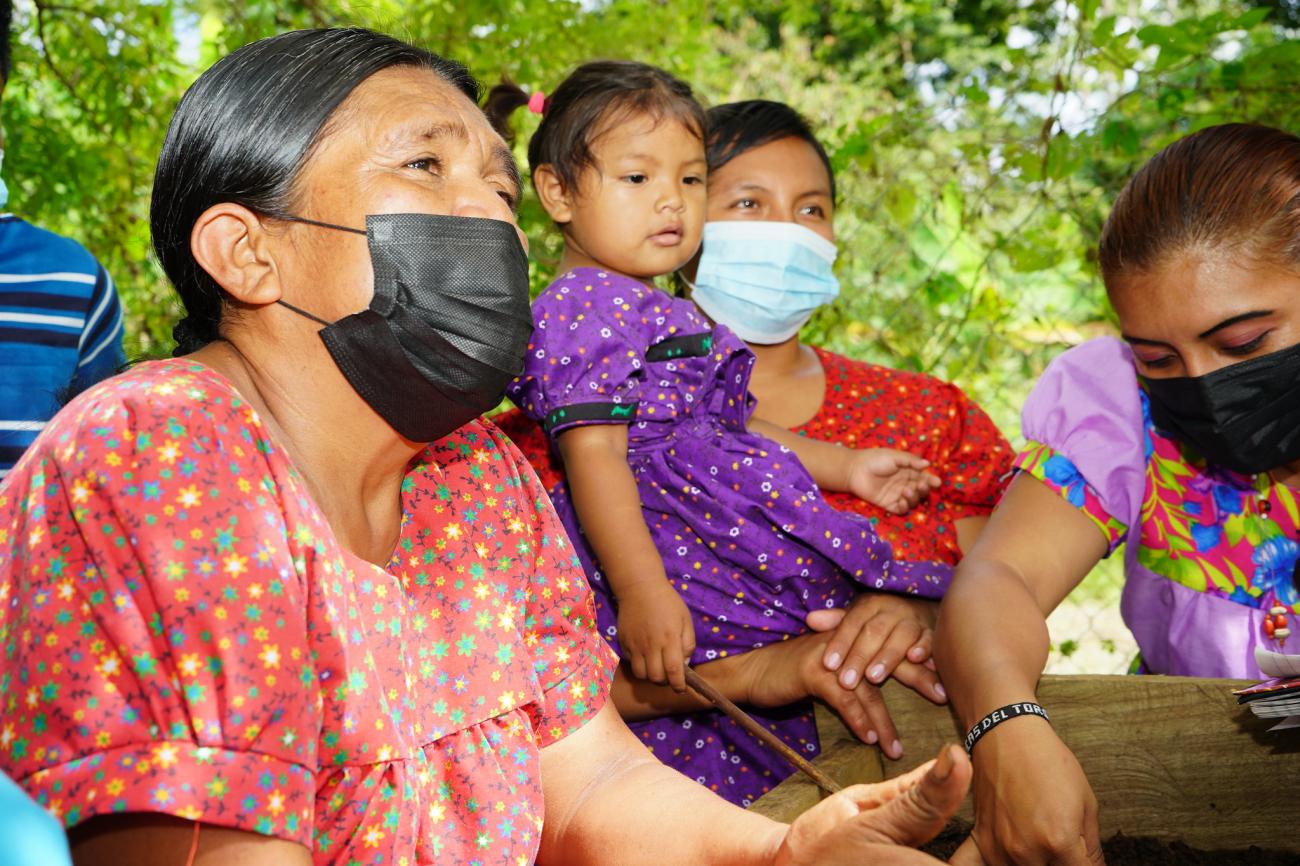
It is 4:00 a.m., and the sun hasn’t risen yet but the women of Bonyic and Sieyic, in the Naso Tjër Di comarca* in Panama, are already up and ready to start their daily labor.
The comarca Naso Tjër Di is made of 16 Indigenous communities that inhabit the banks of the Teribe river in the district of Changuinola, in Bocas del Toro province - a few kilometers from Parque Internacional La Amistad (Friendship International Park), which marks the border between Panama and Costa Rica.
Rosibel Quintero and Isabel Sanchez live in Bonyic, the only community that can be reached by road from Changuinola. Together they lead the United Women Organization of Bonyic (Organización de Mujeres Unidas de Bonyic, OMUB) which was founded in 2004 to address the nutritional needs of schoolchildren in the area.
At that time, Isabel, who was a member of a parents’ association, noticed that some of the children were fainting from hunger at school. She decided to take action and gathered a group of women to create a small school garden to feed the students, particularly those who came from remote communities with long commutes and no time for breakfast in the morning.
“Back then, there were no nutritional allowances, no milk, and none of the nutritional meals that are provided to children these days, so we decided to build gardens”, says Rosibel, chair of the women’s organization.
Two decades later, the project which started as a small vegetable garden became a successful communal business. In 2010, Isabel and Rosibel secured funding through the Panama and Costa Rica Binational Cooperation Project to build a small tourist inn with a community garden, where they harvest cucumber, cocoa, lettuce, bananas, tomatoes, coriander, yams, among other traditional crops.
The income generated from this inn allowed the community in Bonyic to flourish; fostering leadership among young women and encouraging them to advance their formal education.
When the pandemic struck in 2020, the community faced a significant test. Tourists stopped visiting the area and these entrepreneurial women lost their primary source of income.
Amid the crisis, the women of Bonyic decided to revive their community gardens with the financial support of the United Nations Development Programme’s (UNDP) Small Grants Programme. By adding new crops, they found a way to provide food and nutritional security to their households during the health emergency.
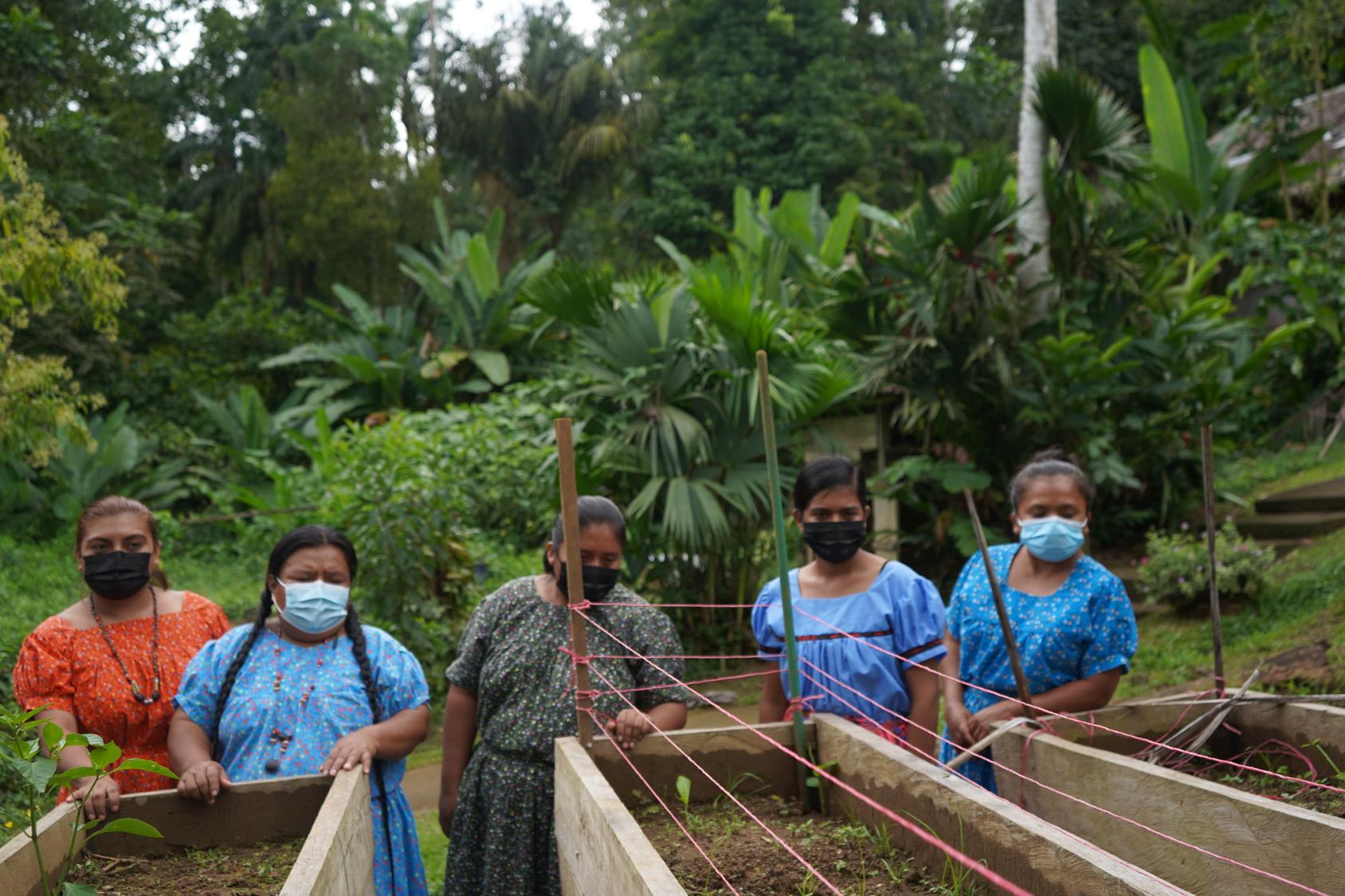
“We didn’t get any help from the government. So, we just grabbed a plantain, a yam and a chicken, and figure out ways to feed our children with that”, adds Rosibel.
Although these community gardens provided a safe way for the women of Bonyic to feed their families during the pandemic, members of another producers’ organization, based in the community of Sieyic, decided to go one step further and also grow crops for sale.
Fulfilling the increased demand for organic food
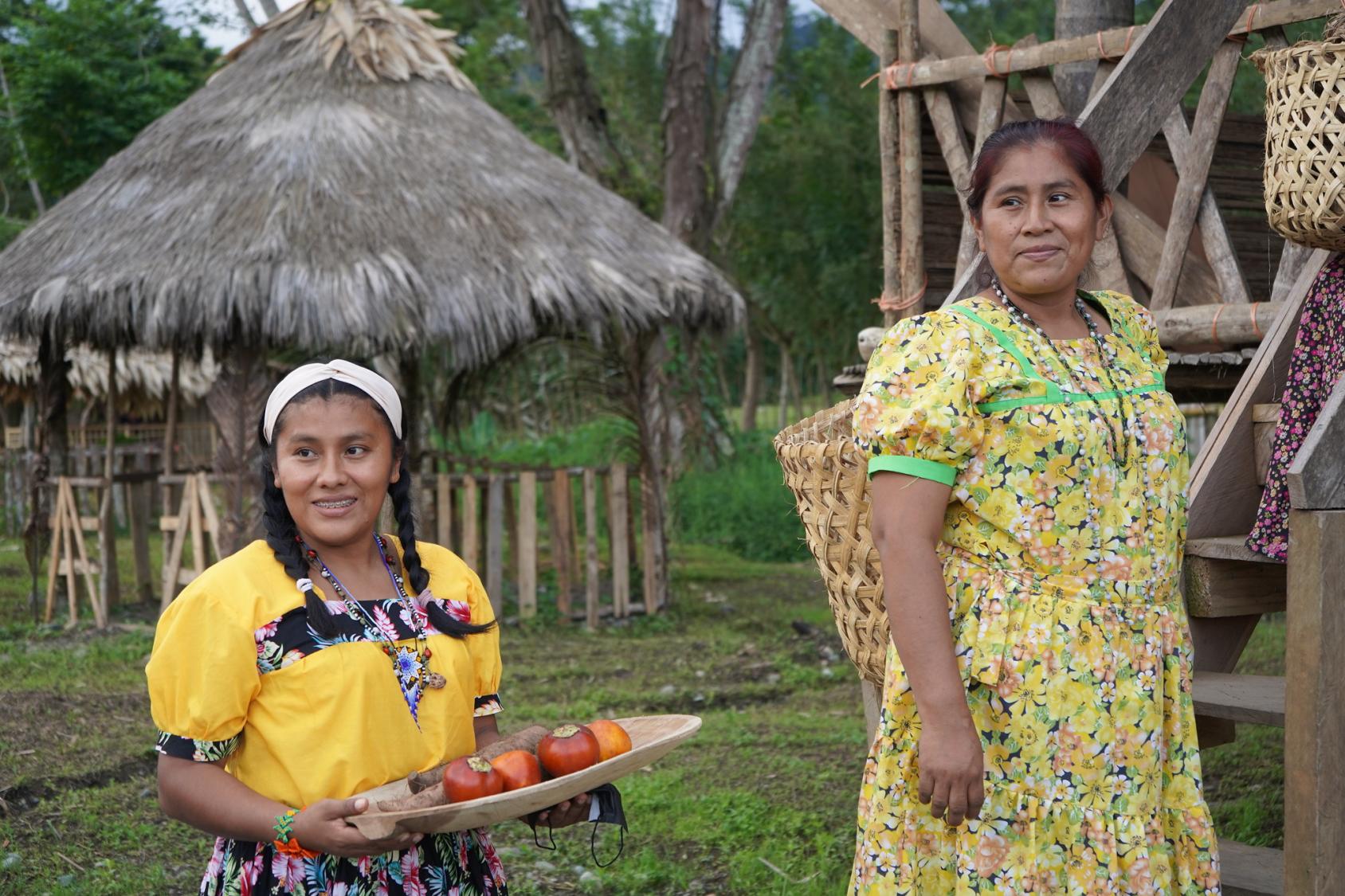
“Before the pandemic, we used to walk down to the streets of Changuinola to sell our products. When COVID-19 hit, everything was uncertain, but we decided to take our products directly to people’s homes, and we managed to increase our number of customers”, adds Leticia, president of the Naso Ooka producers’ organization in Sieyic, the main town of the Naso Tjër Di Comarca.
From her point of view, the pandemic increased their sales because more people started looking for chemical-free vegetables and legumes.
Since fuel is expensive and Sieyic is located several hours away by canoe, the farmers built a unique paddle raft to deliver vegetables and legumes to their customers.
For the first time, they started selling in Colón Island by sailing across the mighty rivers Teribe and Changuinola.
“For producers from ‘Sieyic arriba’, selling our products is tough because it is a very distant community, but it is not impossible as the pandemic has shown us”, Leticia concludes.
Supporting food security
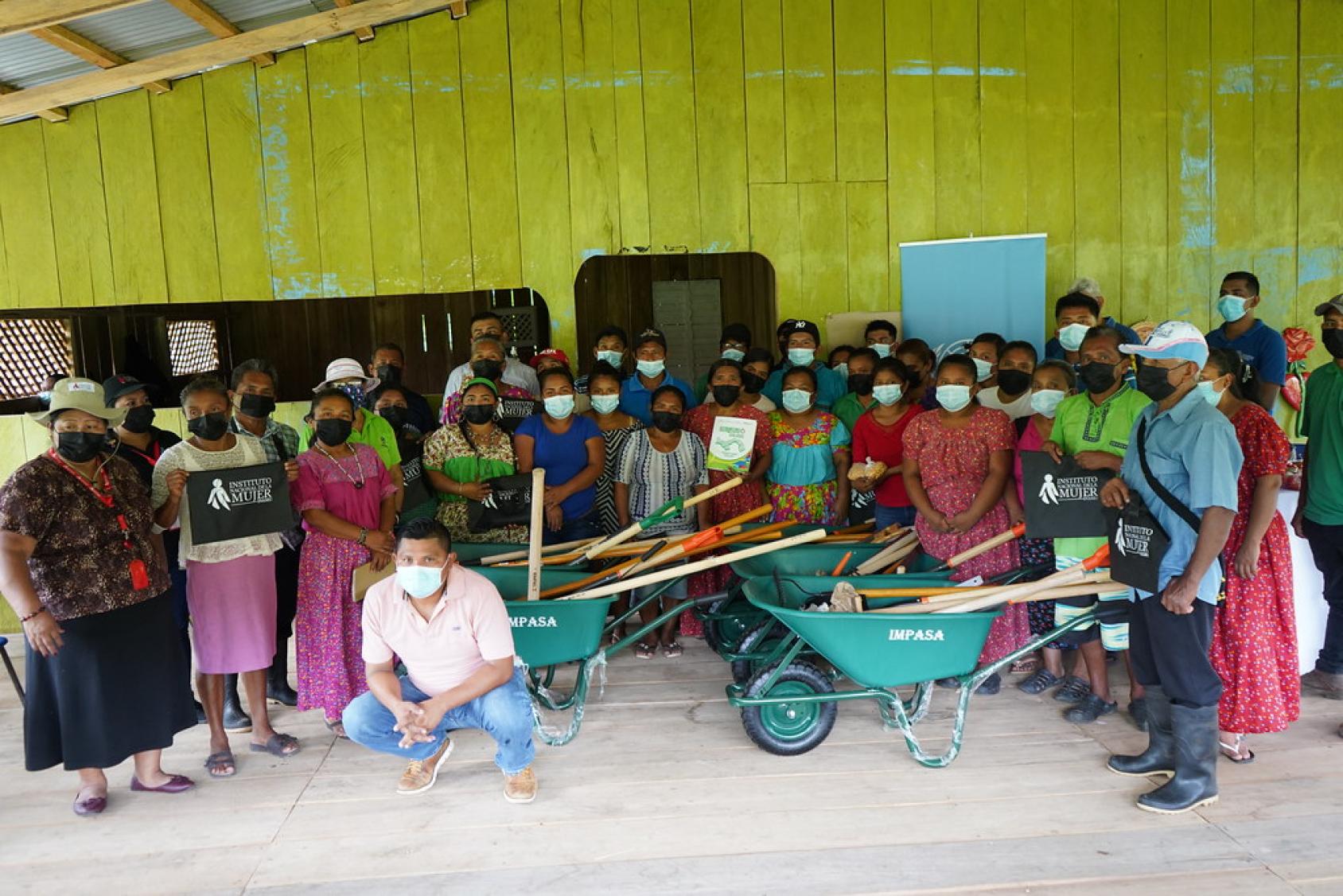
OMUB and Ooka are part of the 13 organizations that took part in a training day to improve family farming, which was organized by the Ministry of Social Development and the Ministry of Agricultural Development, with the support of the United Nations System through FAO, as well as other government institutions.
This training is part of the actions identified through the dialogues on food security carried out by the Government of Panama, with the technical and financial support of the UN system.
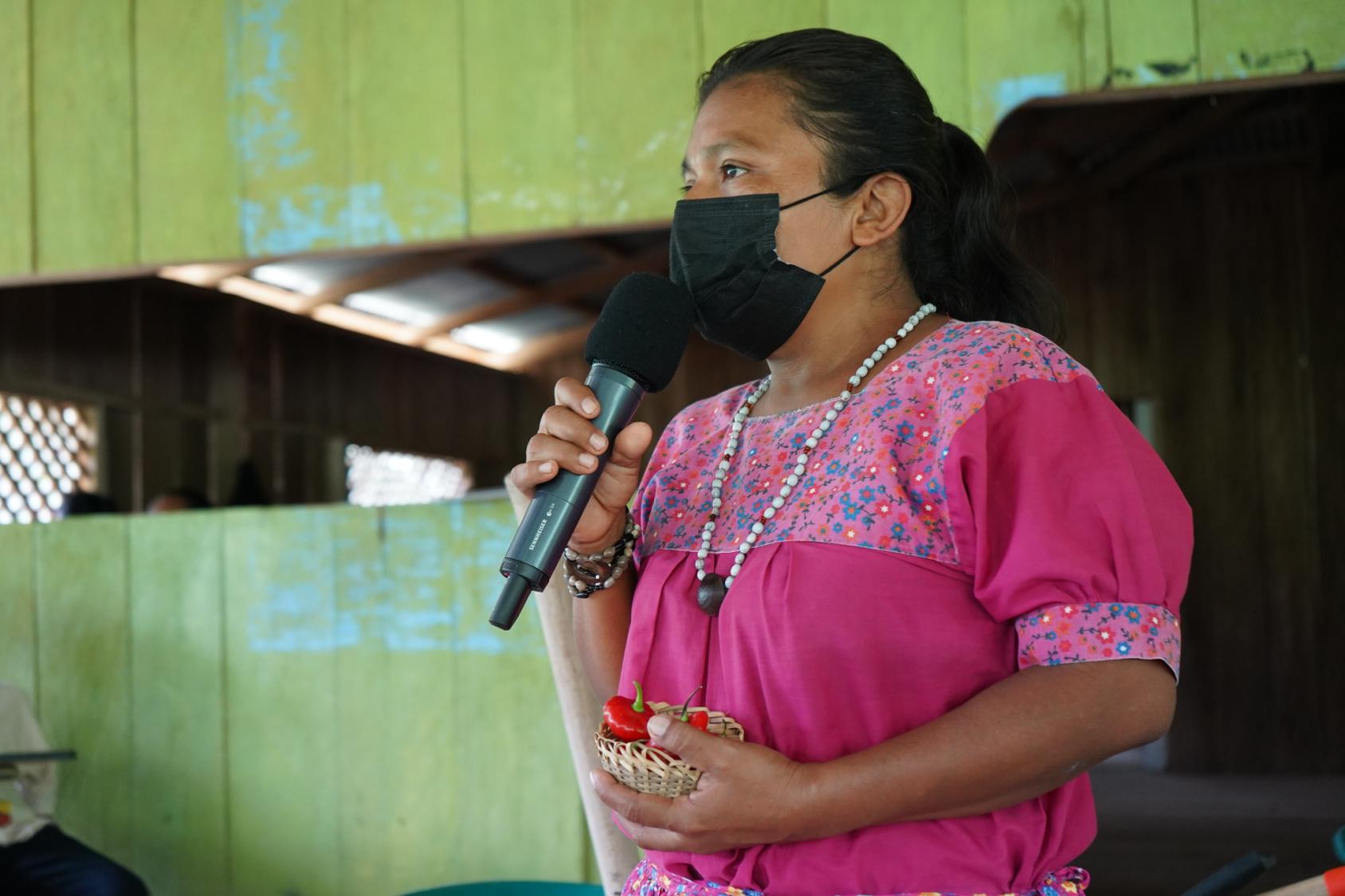
As female leaders Isabel, Leticia and Rosibel are role models for other young women willing to challenge the cultural norms which used to restrict them to caregiving and domestic roles.
By promoting the importance of strong female leadership during childhood and adolescence, these Indigenous women are setting a new path for other women in their communities.
* Comarca is the Spanish term used to describe a territorial circumscription in Panama that, while seeming to appear on the map as simply another province of this country, it is actually a semi-autonomous territory governed by the indigenous people(s) living there.
Written by Janibeth Miranda Plúa, Communications and Information Officer, UNIC Panama. Story originally posted on UN Panama and UN News. Editorial support by the Development Coordination Office.
For more information about the United Nations’ work in Panama, please visit: Panama.UN.org.













